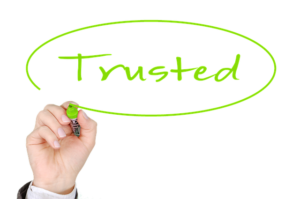
A college admissions scandal, in which celebrities, and others (over 40 people), paid to have fraudulent information included in their children’s applications, is a telling reminder of how under-valued integrity is in our society.
The news of this scandal is disturbing for a number of reasons, not the least of which is the fact that those involved apparently saw nothing wrong with cheating and assumed their corrupt actions would never become public. Also, unsettling is the fact that they saw nothing unethical about providing false information and buying their children’s admission to college, not to mention the negative example they set by criminal activity.
Integrity matters, and it’s up to each of us to value and preserve integrity.
Here are four ways to guard integrity:

Value Honesty
On the surface, telling the truth seems simple enough, but often ego and pride take center stage, and suddenly, enhancing the truth to elevate image, gain something, or escape reality seem acceptable.
My grandfather was a wise man, whose name was synonymous with honesty and integrity. He often said, “your name is all you’ve got” and “tell the truth and you don’t have to remember what you said.”
When you lie, you have to remember what you said, to whom you said it, and in what context. And unless you memorize a detailed list of your untruths, you’re bound to slip up, at some point, and say or do something that contradicts your lies. So, make truth a priority, without exception, not because lying is complicated, but because honesty is a standard worthy of upholding.

Remain Trustworthy
Have you every shared a concern with someone, asked them to keep what you discussed in confidence, and then overheard your situation being discussed by multiple people? It hurts, doesn’t it, to have someone betray you by talking to others about what you told them in confidence.
“Trustworthy” describes a person who can be entrusting with information or to carry out a requested action. Some people have a hard time being trustworthy because they just can’t resist the feeling of power it gives to have information and then share it. But it only takes one time of breaking a promise to lose the trust component of integrity.

Accept Responsibility
The current trend in our culture is to accuse and blame others rather than accept responsibility for our mistakes. When someone fails to read directions and misuses a product, blame is directed toward the manufacturer and a lawsuit initiated. A person who is diagnosed with a disease, blames his employer, claiming the illness resulted from job stress rather than admitting years of unhealthy eating habits and lack of exercise. Those who cheat or embezzle claim they didn’t realize they were doing anything wrong. Really?
The list could go on, but the point is most people don’t want to take responsibility for their actions. However, people of integrity admit mistakes without putting a “spin” on what happened that implies others caused their actions and are at fault.

Avoid Corruption
In the same time frame as the national admissions scandal, a local woman was arrested for stealing from the utility company where she was office and operations manager. The monetary amount was much less than those involved on the national level, but that doesn’t make her actions any less corrupt.
Corruption usually refers to someone who accepts bribes, or accepts money or something else of value to perform a dishonest action. Another definition of corruption is decay. If you’ve ever taken a walk in the woods in the fall, you know the smell of decay—rotting leaves , berries, and other plant matter. Corruption stinks. Corruption damages your reputation and sets a terrible example, but it is so prevalent in our society that increasingly it is accepted as the norm rather than viewed as wrong.
Satan has interesting ways of twisting our thoughts to justify sin. Some of those involved in the college admissions scandal probably felt they were “helping” their children by their actions. Those who embezzle often feel they deserve what they steal. But dishonesty and corruption always come to light and neither are ever acceptable.

Integrity values honesty, by-passes selfish motives, acknowledges right from wrong, honors truth, and is a catalyst for forward motion. Integrity is more valuable than any financial gain, fame, or position. Integrity is worth preserving and guarding.
“Extortion turns a wise man into a fool, and a bribe corrupts the heart.” Ecclesiastes 7:7 NIV
©CandyArrington


3 Comments
Amen. When choices come before us, I pray we will seek His guidance first.
“Accept responsibility” – that’s one that we have been teaching our children since they could talk (and sometimes teaching by accepting our own responsibility with them).
Thanks for sharing.
Thanks for reading and commenting, Kathryn.